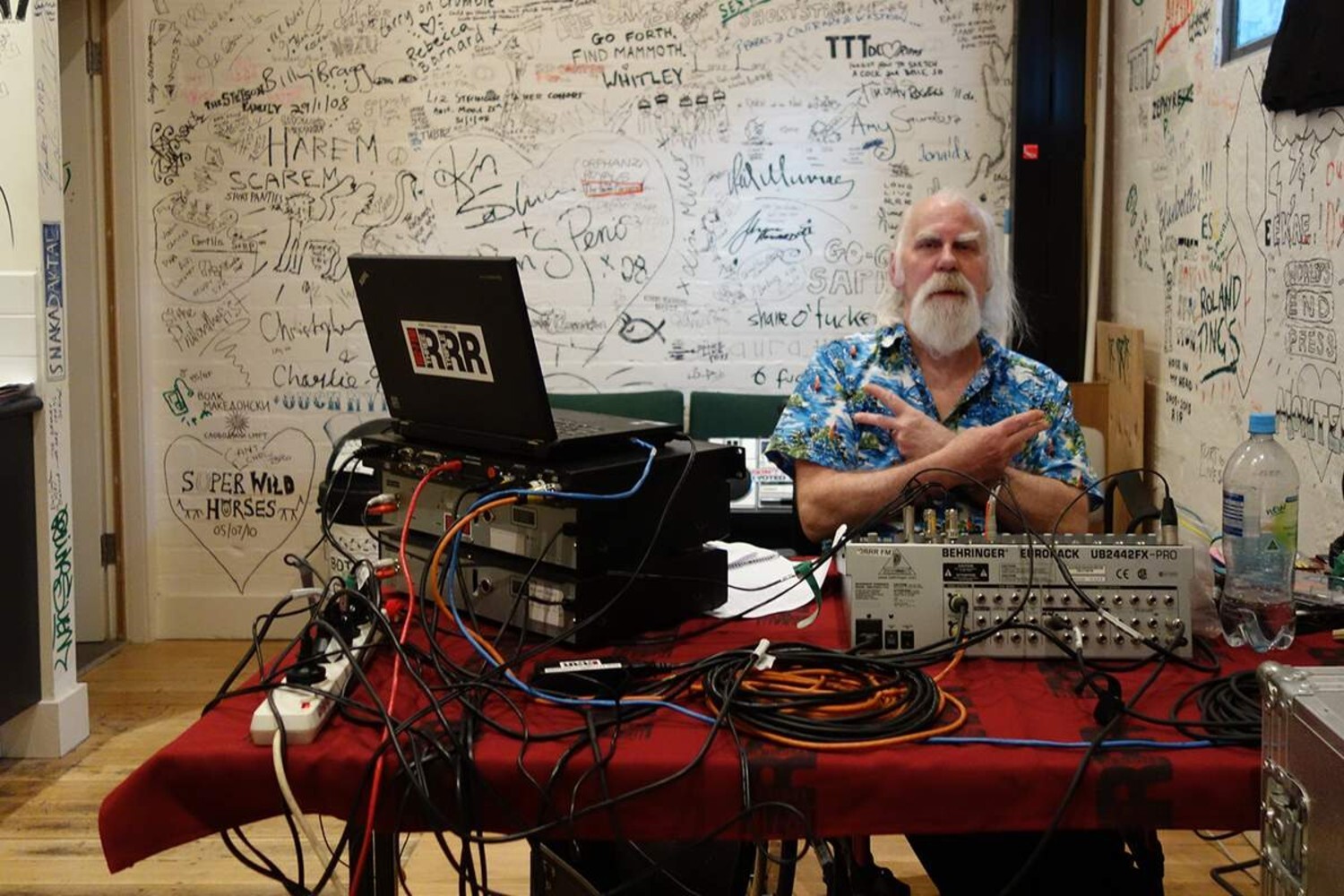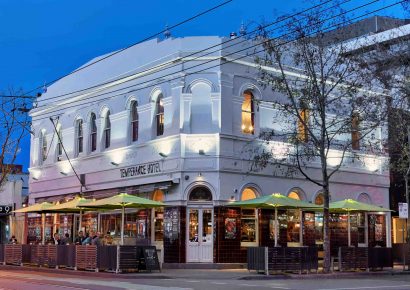Turn your passion into a paycheck.
The music industry is a big one, made up of countless positions and roles that work to create and promote the music that we listen to day-to-day. Fortunately, it encompasses a diverse range of skillsets and qualifications, so there is no limit to how you can contribute to the industry. Here’s a good starting point for just some of the jobs you could pursue.
Keep up to date with all the latest music interviews, news and reviews here.
Band booker
The band booker is largely that – they book bands for live music venues. They are responsible for coordinating with artists and artist managers, negotiating performance fees, in-house technical requirements such as set up, soundchecks, and more. A band booker must have good interpersonal and communication skills and have a good grasp of the current live music scene.
Music promoter
A music promoter is responsible for publicising and promoting performances. They organise gigs, book bands/artists and advertise the shows. They are the ones responsible for overseeing the promotion of performances in the media – on radio, television and online – and make sure that an artist has everything they need during a performance, both offstage and on.
How to get involved: You can do a Bachelor of Arts (Music Industry) degree at RMIT University.
Artist manager
One of the more senior roles within the music industry, the artist manager, has a lot of responsibilities. They pretty much manage all of the artist’s affairs and work with a lot of the other roles in the music industry. The artist manager is in charge of negotiating contracts, helping to market an artist and craft their image, organising touring, promoting the artist and much more. A manager’s role may vary depending on how big the rest of the artist’s team is, but suffice to say, they are responsible for a lot.
How to get involved: A Bachelor of Arts (Music Industry) degree at RMIT University could get you there, or a Bachelor of Entertainment Management at the Australian Institute of Music.
Music publicist
The music publicist handles media and public relations on behalf of an artist. They’re responsible for ensuring the artist’s public image is maintained, and manage the artist’s engagement with the public, whether via social media or through interviews. The music publicist often coordinates with the media whenever they want to interview an artist, or will release statements on behalf of the artist in response to media questions.
How to get involved: You can do a Bachelor of Communications (Public Relations) degree at RMIT University, Swinburne University, or Deakin University, among others.
Recording engineer
The recording engineer is one of the more advanced jobs in the industry – it requires you to have a good knowledge of audio and sound, as well as how to use technical equipment and programs. A recording engineer generally oversees things like noise control, acoustical design, and sound level settings during recording. They can also be responsible for editing, mixing and mastering sound recordings.
How to get involved: How about a Diploma in Music Industry (Sound Production) at United Pop?
View this post on Instagram
Music producer
Another big player in the music industry, a music producer also has a lot of responsibilities. Generally speaking, a music producer oversees the production of an artist’s songs or albums, helping to shape and refine the music. Bear in mind, the duties of a music producer may vary and can change depending on the genre of the music the producer is working on.
How to get involved: You can do a Bachelor of Music at the University of Melbourne, Victoria University, Melbourne Polytechnic, or Monash University.
Artist
When you think of jobs in the music industry, a musician/artist is probably the first thing that comes to mind. Whether you’re a solo act or part of a band, there aren’t a whole lot of rules to becoming an artist, or how to become an artist for that matter. Obviously you’ll need to be able to play an instrument or sing, and you’ll need to be savvy if you want to get your foot in the door. A good understanding of the industry and how it works will go a long way too.
How to get involved: You can do a Bachelor of Music at the University of Melbourne, Victoria University, Melbourne Polytechnic, or Monash University.
Bartender
In many cases, bartenders are the heart and soul of live music venues. It’s often a good entry-level job to help you get into the music industry – it may not seem like a direct pathway, but working in hospitality can help build an understanding of the industry, and what is required in order to get into it. You can easily work your way up, plus bartending doesn’t always require a lot of experience or qualifications.
Booking agent
Booking agents are in charge of booking gigs and appearances for musicians. They work closely with music promoters to ensure that everything the artist needs for a performance is provided, and are responsible for planning tour schedules and routes, as well as finding sponsors. A booking agent must have a good rapport with band bookers and concert promoters in order to book venues for their artist’s gigs.
How to get involved: You can do a Bachelor of Arts (Music Industry) degree at RMIT University or a Bachelor of Entertainment Management at the Australian Institute of Music.
Music journalist
If writing is more your style, then music journalism might be for you. A music journalist reports on everything happening within the music industry. This can include writing album or song reviews, profiling artists, or breaking music-related news. A music journalist can either freelance or work for a publication – like Beat Magazine. Like any journalist, a music journalist must be good at pitching ideas for articles or news stories, researching, and above all, making connections.
How to get involved: You can do a Bachelor of Communications or Bachelor of Media and Communications degree at RMIT University, University of Melbourne, Swinburne University, La Trobe University, Deakin University, or Monash University.
Tour manager
The tour manager oversees everything during tours, travelling with musicians on the road and ensuring everything goes smoothly. Some of their responsibilities involve arranging travel plans, managing finances for the tour, coordinating with venues, ensuring artists’ riders are met, and scoping out services at each tour stop. They are also in charge of arranging transport and accommodation.
How to get involved: You can get a Bachelor of Arts (Music Industry) or a Bachelor of Business Management degree at RMIT University, or a Bachelor of Entertainment Management at the Australian Institute of Music.
Music photographer
Music photography can encompass a few different things. It can involve shooting artist portraits for magazine articles and press releases, shooting album and single covers, and photographing live performances. Music photographers generally freelance, but they can also be kept on as personal photographers for artists.
How to get involved: You can study a Bachelor of Arts (Photography) degree at RMIT University or a Bachelor of Creative Arts (Photography) degree at Deakin University.
Label manager
A label manager helps run a record label, overseeing all of the departments within the label through the production and release processes. Label managers help create schedules and budgets for new songs and albums released by a record label, as well as ensuring the process is smooth and the music is of high quality. They are also generally in charge of marketing and promotion, as well as contract signing and licensing negotiations.
How to get involved: You can study a Bachelor of Arts (Music Industry) or Bachelor of Business Management degree at RMIT University, or a Bachelor of Entertainment Management at the Australian Institute of Music.
View this post on Instagram
Videographer/cinematographer
For the most part, videographers and cinematographers’ main role within the music industry is to shoot music videos, but they can also be hired to film concerts, live performances, festivals, and other promotional videos. While they are in charge of filming, videographers and cinematographers may not always be in charge of directing music videos.
How to get involved: You can do a Bachelor of Film and Screen Media Production degree at Griffith University, Bachelor of Screen Production at Swinburne, or an Associate Degree in Screen and Media Production at RMIT University.
Stage manager
A stage manager is in charge of ensuring an artist’s requirements for a concert are met. They oversee the stage crew in preparing and setting up the stage before a performance. In other words, the stage manager is responsible for supervising all stage-related activities, from technical matters like lighting to security and backstage facilities. It is the job of the stage manager to ensure everything is organised and runs smoothly onstage.
How to get involved: You can do a Diploma of Live Production and Technical Services at RMIT University or a Bachelor of Fine Arts (Production) at the University of Melbourne.
Music merchandiser/merch designer
The music merchandiser or merch designer is in charge of creating merch for an artist. They design, manufacture, and distribute products related to the artist, from t-shirts to posters. Those working in merch need to be proficient at graphic design, as well as deciding what merchandise products suit and promote an artist best.
How to get involved: You can do an Associate Degree in Graphic Design or a Bachelor of Design (Communication Design) at RMIT University, or a Bachelor of Design at Swinburne University, Monash University, Deakin University, or University of Melbourne.
Roadie
A roadie, or road crew as it is less colloquially known, travels with the band or artist while on tour. Roadie is more or less an umbrella term that encompasses many jobs, including tour managers and stage managers, but also lighting technicians, security, merch crew, pyrotechnicians and more. They handle pretty much every aspect of concert production – except for actually performing.
Concert/event producer/event coordinator
Another hefty role in the music industry, a concert producer has a big responsibility. They basically oversee the production of concerts and live performances, and are in charge of booking artists, hiring staff, preparing venues, and obtaining the necessary equipment and other production elements. They also create the budget for a concert based on what is needed. The concert producer’s role is similar to the stage manager’s but differs in that they have more responsibilities off the stage. The concert producer is also a more senior role.
How to get involved: You can do a Bachelor of Arts (Music Industry) degree at RMIT University, a Diploma of Event Management at Victoria University or Swinburne University, or a Bachelor of Business (Event Management/Marketing) at La Trobe University.
Radio DJ
If you’re not looking to take on any big management roles for the moment, you might consider radio DJing. Radio DJs are important to the music industry because they are the ones in charge of making sure music gets heard. As well as playing music, DJs are also in charge of interacting with listeners, interviewing artists, reporting the news, and more. They can also be pretty influential in the promotion of a song or album.
How to get involved: You can do a Bachelor of Communications or Bachelor of Media and Communications degree at RMIT University, University of Melbourne, Swinburne University, La Trobe University, Deakin University, or Monash University.
Want to know more about your study options? Check out our round-up of Australian education institutions for kickstarting your creative career.

